Gratz During the Civil War – Henry M. Witmer, Saddle & Harness Maker
Posted By Norman Gasbarro on September 21, 2011
In the years before the Civil War and in the years following the war in which veterans returned and lived in Gratz, this property, known as Lot #42 on the original Simon Gratz subdivision, was owned by three families. Each of the families had a number of Civil War veterans who were associated with it. The Kissinger family was the first to purchase this property in 1819.
The house that exists today consists of the original log house, built some time before 1840, to which was added some outbuildings and additions. The earliest available picture is from the second half of the twentieth century. The 1862 map shows two building fronting on Market Street and it appears from the current views of the house, that they were connected into one building at some time in the past.
KISSINGER FAMILY
The Civil War veterans from the Kissinger family were not born on this property since the family owned it only until 1834. Two descendants are worth noting though because they spent most of their lives in the Gratz area.
Jarius Kissinger (1840-1882), great-grandson of the original purchaser, first served in the 177th Pennsylvania Infantry, Company I, as a Private from 2 November 1862 through 5 Aug 1863. He also served in the 210th Pennsylvania Infantry, Company H, as a Sergeant from 16 September 1864 through 30 May 1865. He married Sarah Hartman. Jarius, who was also known as Jerius, Jonas, Josias, and Jorias, was a farmer in Gratz, Lykens Township, and Washington Township. He died in the great smallpox epidemic in Gratz in 1882 (more on this epidemic in future posts) and is buried in Gratz Union Cemetery.
Jacob Kissinger (1843-1921), also a great-grandson of the original purchaser and first cousin of Jarius Kissinger (above), was a member of the Home Guards, 36th Pennsylvania Infantry, Company C, a private who served from 4 July 1863 to his discharge on 11 August 1863. He later joined the 9th Pennsylvania Cavalry, Company K, as a private and served from 25 February 1864 through muster out on 18 July 1865. In Sherman’s March to the Sea and the great Atlanta Campaign, Jacob received a gunshot wound to the foot at Griswold Station, Georgia. When he returned from the war, he married Amanda Williard and lived in Gratz and Lykens Township. He learned the craft of shoemaking before the war, but after the war he is found in the records as a farmer.
The Gratz post of the G.A.R. was named Kissinger Post #376 in recognition of the Civil War service of this family. Additional research is being conducted to determine the reason for the choice of name. Most of the records of the post have been misplaced or lost over the years and its history has to be reconstructed from family records and newspaper accounts. The above-shown photograph of Jacob Kissinger in his G.A.R. uniform is from the digital collection of the Civil War Research Project.
HOLTZMAN FAMILY
The next owners of this property were Peter and Catherine Holtzman, purchasing it in 1834. Peter was a hatter and used the smaller building as a shop. The Holtzman records at this property had to be reconstructed so much of the genealogical information is still sketchy. It is known that Peter Holtzman (1809-1863) sold the property back to a member of the Kissinger family in 1846, but remained here as a tenant until around 1855, when he moved to Lykens Borough. While in Gratz, he also served as Justice of the Peace in the 1840s. Peter died as a result of an accident in 1863; a tree that he was felling struck and killed him. The oldest children of Peter and Catherine were girls, two of whom married Civil War soldiers. The girls, Rebecca Holtzman (1836-1921) and Lovina Holtzman (1841-1912) were born in this house.
Rebecca married Jonas P. Riegle (1835-1889), a son of Dauphin County Commissioner Daniel Riegle (1804-1855) and brother of two other Civil War veterans, Harrison Riegle (1840-1899) and Josiah R. Riegle (1829-1886). Jonas served in the 50th Pennsylvania Infantry and spent some time in a hospital in Kentucky after he contracted malaria.
Lovina married William Bitterman (1838-1895) who served in the 9th Pennsylvania Cavalry from 1861 to 1865. William’s father, Daniel Bitterman (1813-1862) also served in the 9th Pennsyvlania Cavalry but got typhoid fever and died in a hospital in Litchfield, Kentucky. Daniel was a farmer in the Wiconisco area. William was a laborer who after the war became a stable boss for a coal company in Lykens.
HENRY M. WITMER, SADDLE & HARNESS MAKER
After the Holtzman ownership, this property changed hands several times and was primarily occupied by tenants until it was purchased in April 1861 by Henry Witmer (1838-1885), a saddler and harness maker. Henry remained the owner for most of the Civil War, until April 1865, when it was sold to Tobias M. Wiest, and the Witmer’s remained on the property as tenants. Some believe that financial considerations led Henry to add “butcher” to the activities that took place in the adjacent shop. The property also fell into great disrepair during the Witmer ownership
During the Civil War, Henry left Gratz for a time to serve in the 177th Pennsylvania Infantry, Company I, as a Sergeant, from 2 November 1862 through 5 August 1863. Henry’s wife, Amanda Fegley (1834-1918), applied for a widow’s pension after his death. In the pension files is an 1886 statement from a doctor who attended to Henry Witmer. The doctor refused to provide verification regarding Henry’s treatment because of money owed to him for the treatment. Unless Amanda was willing to make payment, the doctor would not testify in her behalf for the pension. Since there was no record that Henry had applied for a pension for any disabilities he incurred as a result of his war service, Amanda had to get get testimony from friends and neighbors in order to satisfy the government that her claim was valid. Eventually, Amanda did receive a widow’s pension, but it is not known whether she ever paid the doctor for his services. The pension documents are available in digital form through the Civil War Research Project.
After the Witmer’s left this property, it was owned by members of the Tobias family, the Schoffstall family, the Ritzman family, and the Evitts family, all of which had some Civil War connections. Those connections will be (or have already been) discussed in conjunction with other Gratz properties where they had a more primary association.
This is part 15 of an ongoing series on Gratz during the Civil War. Some of the information for this post was taken from the book A Comprehensive History of the Town of Gratz Pennsylvania.
 ;
;
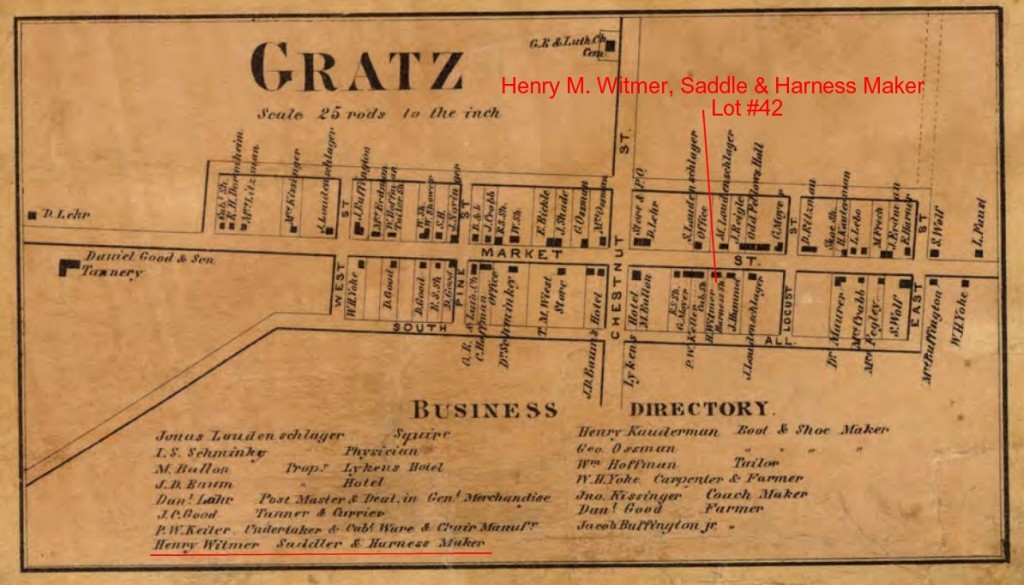
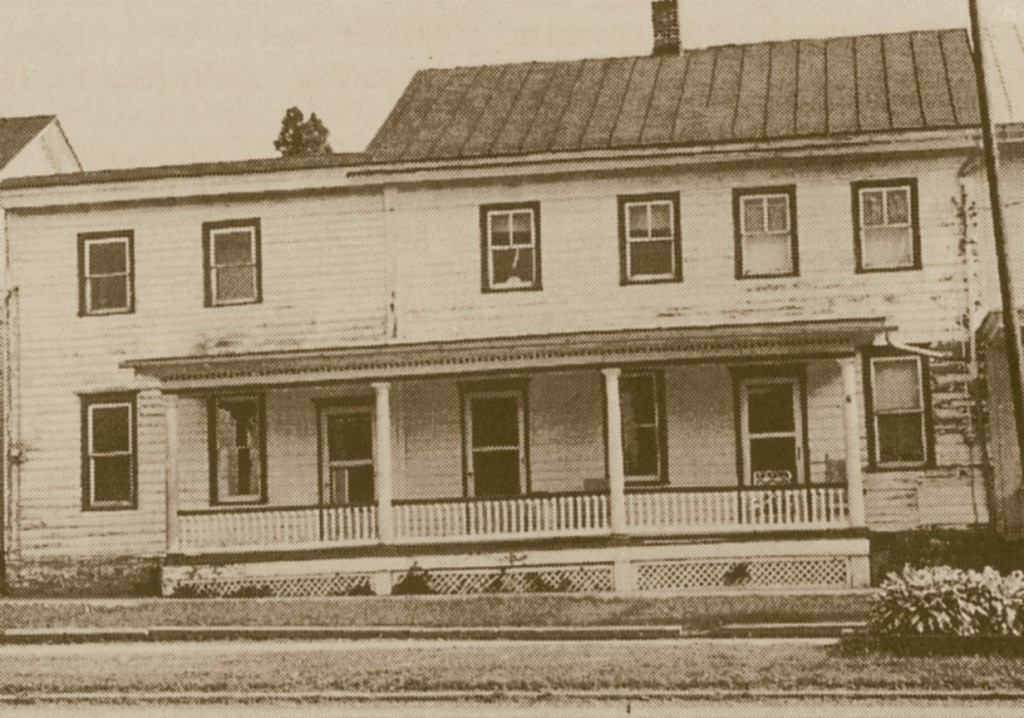
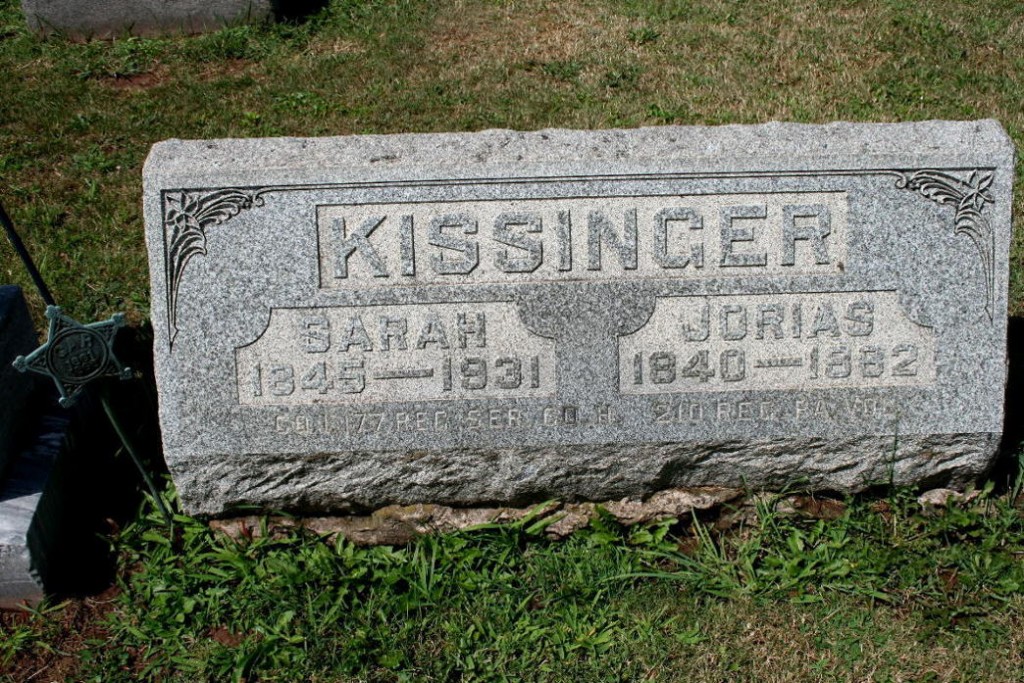
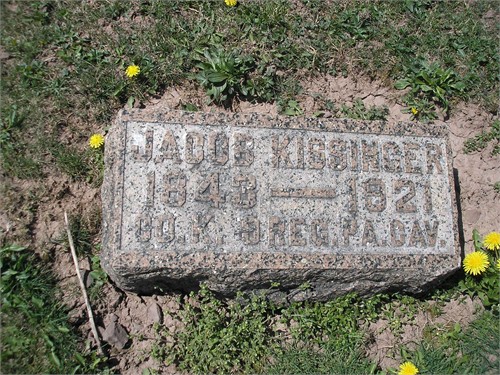
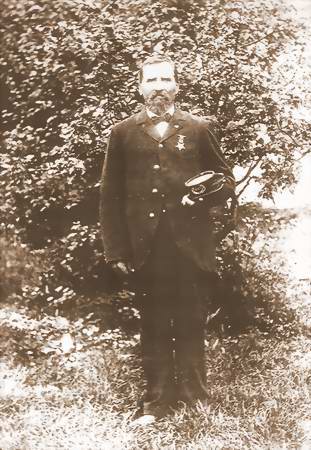
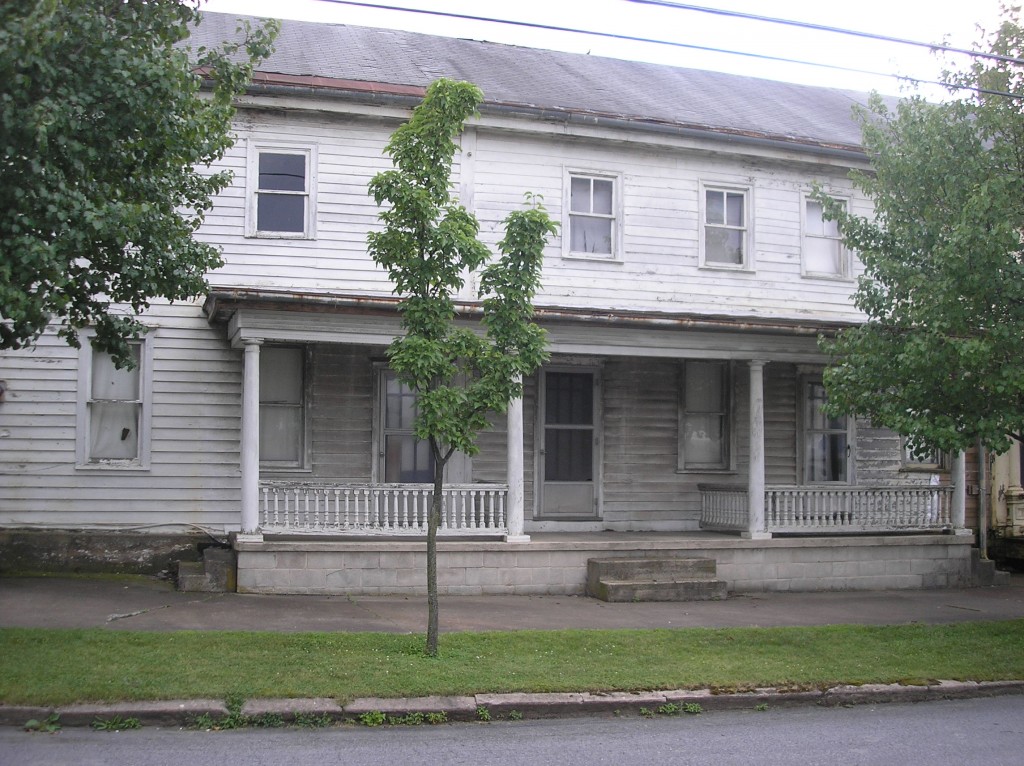


Comments